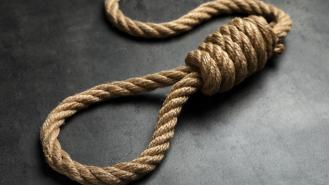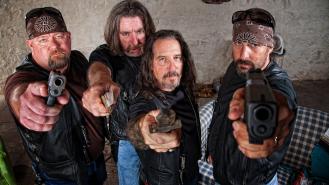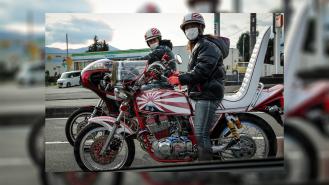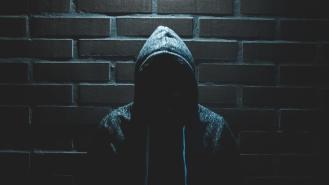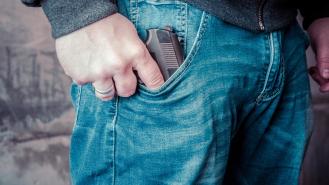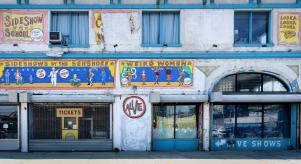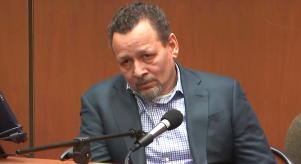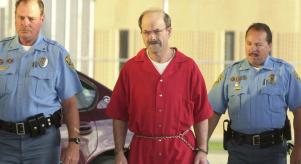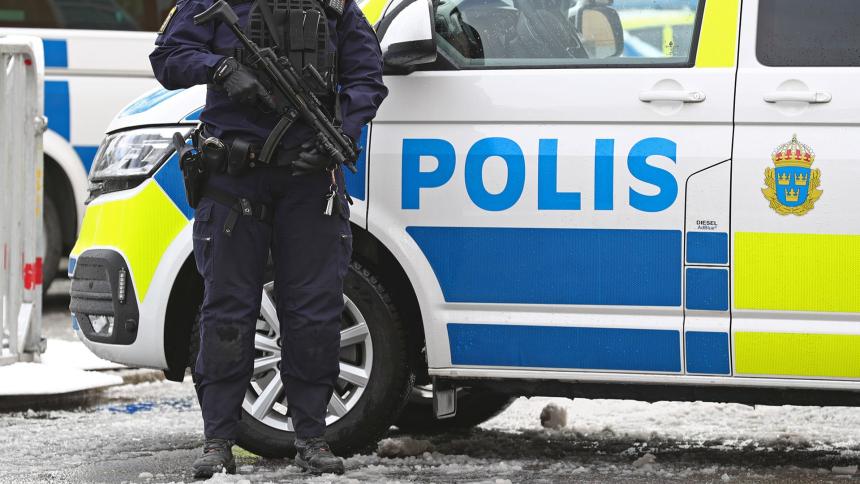
The biggest crime gangs in Europe
Only the most naive of us believe that organised crime is mostly just a figment of Hollywood’s overactive imagination. The truth is that thousands of groups of professional career criminals exist all across the world, making hundreds of billions of pounds each and every year by committing crime. In fact, the amount and scale of these operations is, quite simply, mind-blowing...
Serious organised crime sees gangs of villains conspiring to steal, fence, traffick, counterfeit, defraud, intimidate, blackmail, launder, corrupt, loanshark, exploit, kidnap and murder. In doing so, they put not only citizens but businesses, institutions and even the entire world economy at serious risk.
Some of the planet’s most famous organised criminal gangs are legendary; the yakuza in Japan, the triads in China and the various drug cartels of Latin America, for instance. But organised crime isn’t just a problem for other continents to deal with. Europe is riddled with it too.
Serious organised criminal activity is so endemic that, back in 2016, there were conservative estimates of 5,000 such active networks being talked about by the European Union. Proceeds from illicit markets run by organised crime - across the 28 countries of the European Union - were estimated to run to at least £100 billion.
And you don’t need us to tell you that £100 billion is a lot of money.
So who are these gangs? Well, as we’ve heard there are plenty in operation across Europe. Here are just some of the more notable and interesting players…
Italian Mafias
If there’s one European country that’s synonymous with organised crime, it’s Italy. Three main ‘mafia’ networks operate in the boot-shaped nation: the Cosa Nostra, the Camorra and the 'Ndrangheta. As well as hundreds of smaller gangs and family-based ‘clans’.
The Cosa Nostra (Italian for ‘our thing’), from Sicily, are the most famous Italian mafia. Due to their impact on organised crime in the United States, they’re perhaps the most well-known crime syndicate in history. They primarily make their money from protection racketeering and extortion, skills they learned when Sicily gave up feudalism and turned capitalist in the mid to late 19th century.
Less well known but arguably more successful in Europe now, the Camorra and 'Ndrangheta rule not only southern Italy, but have operations across the entire world. While the Camorra tend to focus on their home city of Naples and the surrounding Campania region, they have a decent foothold across Europe. The organisation, which dates back to the 17th century, has fingers in pizza pies in Spain, Netherlands, France, United Kingdom, Belgium, Greece, Romania, Switzerland and Luxembourg. While the rural Calabrian-based 'Ndrangheta outfit has footholds in prostitution, drugs, fraud and weapons - and a whole lot more - in almost all European countries. Not to mention The Americas and Australia.
Albanians and ‘Hellbanianz’
Balkan organised crime groups are not uncommon in southeast Europe, the wider continent and across the world. Romanian, Bulgarian and Bosnian gangs are active all across Europe. But it’s the Albanians that strike real fear into people.
For such a small country, one which is relatively lacking in influence in any other sphere, Albania has an incredible impact on organised crime throughout Europe. The country itself has 15 main crime families and hundreds of smaller gangs.
In the UK, the majority of human trafficking is controlled by Albanian gangs, especailly the smuggling of illegal immigrants. It’s believed that they also run more than 75% of all Britain’s brothels. But it's the importation of drugs that they specialise in.
Scandinavian biker gangs
Outlaw motorcycle gangs, known rather amusingly as ‘OMGs’ to the police, have been involved in organised crime since their inception, not long after the Second World War. In the US, 'The Big Four' are the Hells Angels, the Bandidos, the Outlaws and the Pagans. In Europe, those first two have quite the impact. Especially in countries like Sweden and Finland.
After making money in America, the criminal biker gangs soon saw the sense in setting up abroad, with the Hells Angels and Bandidos both identifying Nordic countries as rife for exploitation, especially in the countries’ drug markets.
OMGs aren't quite as powerful in Scandinavia as they once were, but they still exist. At their height, turf wars broke out across Sweden, Finland, Norway and Denmark, with the mid-1990s seeing something known as The Great Nordic Biker War. Almost 450 bikers took part in a three year inter-gang battle that saw more than a dozen men die and nearly a hundred wounded.
The Dutch ‘Penose’
For a small, liberal and politically and economically stable western European nation, The Netherlands has its fair share of organised crime. Carving up a lucrative drugs market (the Dutch are the biggest manufacturer and exporter of ecstasy in the world) are the Triads, the 'Ndrangheta, the Serbian, Russian, Turkish and Albanian mafias, as well as gangs from Surinam, the Antilles, Curaçao and Morocco. But organised crime isn't entirely outsourced.
Dutch criminals often run drugs, arms, people and even organs across Europe, working under the collective slang name of 'Penose'. Rotterdam, Eindhoven and The Hague see plenty of action, but it's Amsterdam where most Penose operate. They're a loose association, comprised of a series of smaller gangs, with no real hierarchy.
Irish Paramilitaries-turned-criminals
Illegal markets in Ireland are thought to bring criminals in between £2-2.5bn each year, a relatively modest amount compared to many other countries in Europe. Most of that cash is raised through drug sales, given Ireland is strategically important for drug trafficking into the EU, given its geography.
Ireland sees Russian, Chinese and Eastern European gangs operating there, but former members of now-disbanded paramilitary and terrorist groups are known to be involved in rackets such as cigarette and drug trafficking.
The Belgian ‘Hormone Mafia’
Drugs, prositution, gun running… There are plenty of illicit trades for organised criminals to become involved in. Write a list of a hundred and we bet you still don’t come up with ‘growth hormones for cows’. But in Belgium in the 1990’s, it was extremely big business indeed. At one point, it was the country’s biggest criminal racket behind drugs. When used on beef cattle, growth hormones can see significant increases in meat yields for farmers. So when a ruling came into place within the EU outlawing their use, a black market emerged practically overnight. It's a fascinating story, one explored in some detail in Michael Roskam's 2011 crime drama Bullhead, an Oscar-nominated film starring Matthias Schoenaerts. Of course, this is just a snapshot of organised crime on the continent. The reality is that there are thousands of gangs operating in every country in Europe - and the wider world. You may not see it, but there’s a whole parallel world of illicit activity going on out there...
